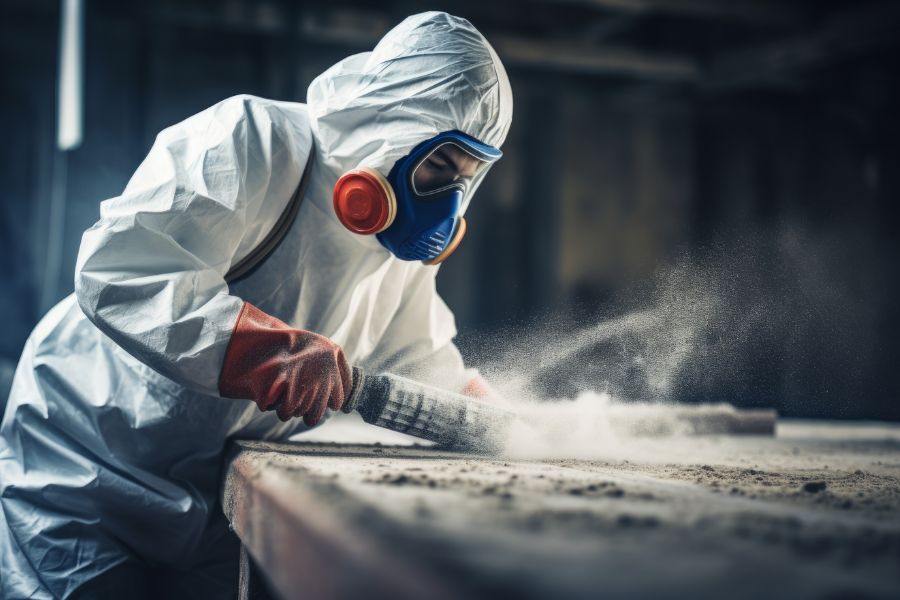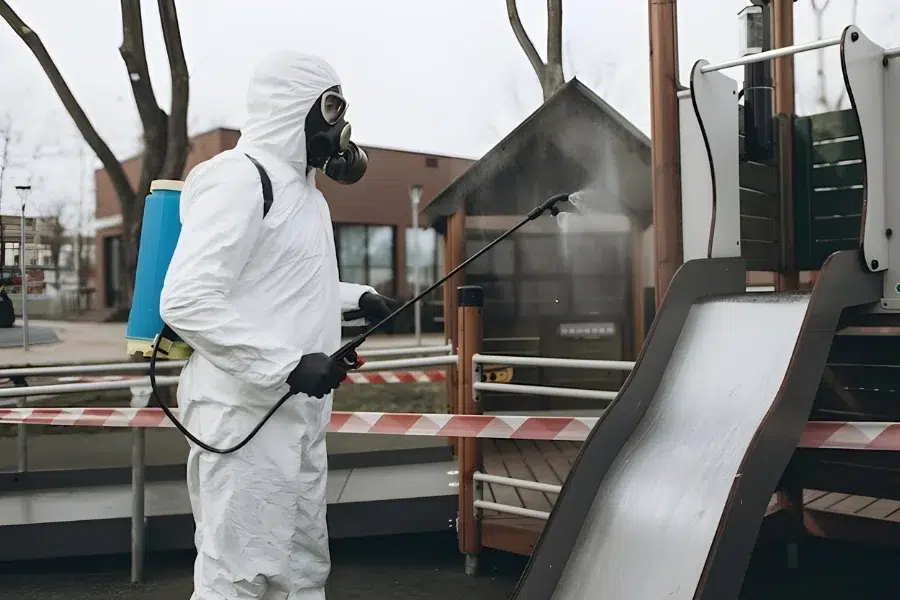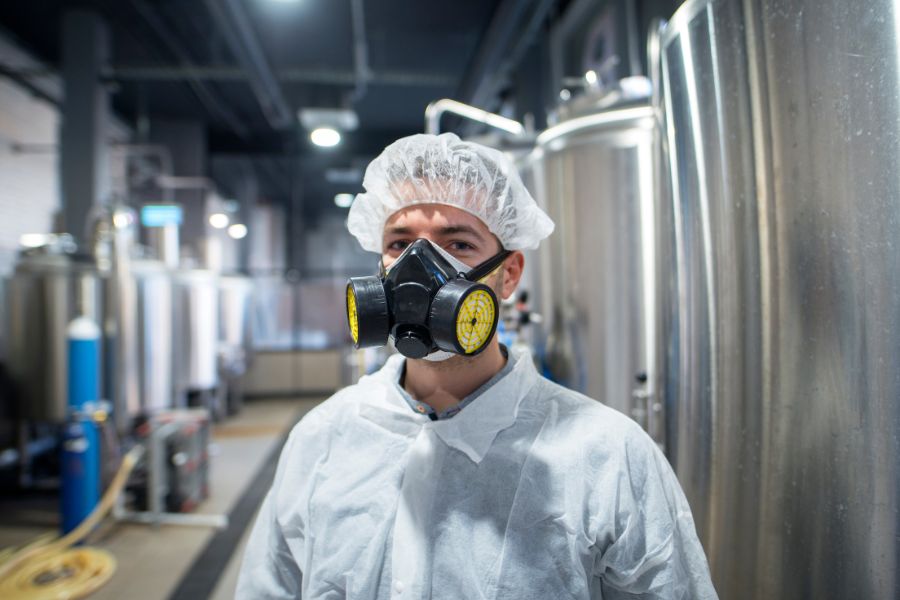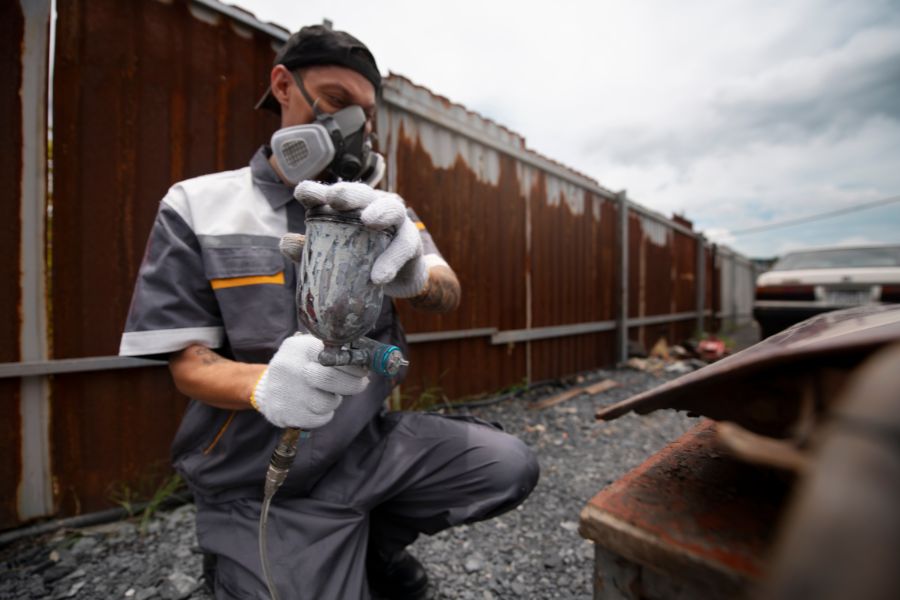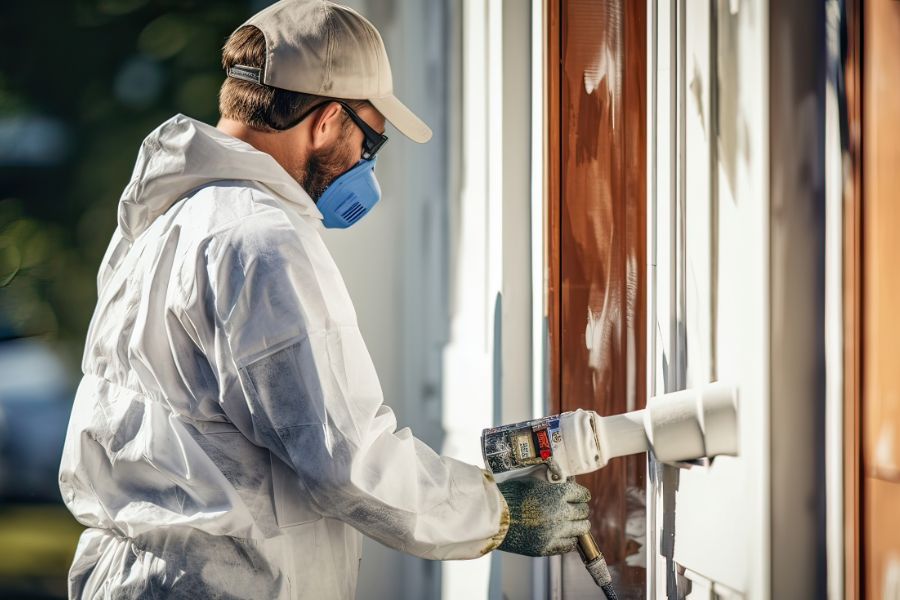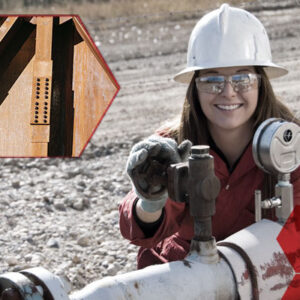Exploring the AMPP Coating Inspector Program Level 1
The Coating Inspector Program Level 1 is an important certification for professionals looking to advance in the field of coating inspection. In this guide, we’ll explore various aspects of the Coating inspector program level 1, such as its importance, what you’ll learn, who can apply, job opportunities, salary expectations, and how it differs from NACE (AMPP)Level 1 and Level 2 certifications.
What is a NACE (AMPP)Coating Inspector?
A NACE (AMPP) coating inspector is a professional who ensures that protective coatings applied to different structures and assets are of high quality and integrity. These inspectors are crucial for preventing corrosion, extending the lifespan of assets, and maintaining safety standards in industries like oil and gas, maritime, infrastructure, and manufacturing.
NACE (AMPP)coating inspectors receive training to assess coating systems, identify defects or issues, and suggest appropriate corrective actions. They work closely with engineers, contractors, and project managers to oversee coating projects from beginning to end, following industry standards and regulations.
Importance of Coating Inspection in Various Industries
Coating inspection is essential in many industries to protect assets from corrosion, chemical exposure, and environmental damage. For example, in the oil and gas sector, pipelines, storage tanks, and offshore platforms face harsh conditions that can cause corrosion and structural damage. Properly applied coatings act as a barrier against these elements, preserving infrastructure integrity and reducing maintenance costs.
Similarly, in the maritime industry, ships and marine structures are constantly exposed to saltwater, which can accelerate corrosion and compromise safety. Coating inspectors ensure that marine vessels are coated with durable and protective coatings that withstand the corrosive effects of seawater, thus extending the life of assets.
In the infrastructure sector, bridges, highways, and industrial facilities require protective coatings to prevent corrosion and maintain structural integrity. Coating inspectors play a crucial role in ensuring that these coatings meet performance standards and adhere to specifications, thereby safeguarding public safety and infrastructure investments.
Overall, the role of a NACE (AMPP)coating inspector is indispensable in preserving the longevity and performance of assets across various industries. By upholding the highest standards of quality assurance and compliance, these professionals contribute to the sustainability and reliability of critical infrastructure worldwide.
It’s important to note that individuals interested in becoming NACE (AMPP)coating inspectors can enroll in the coating inspector program level 1 to gain the necessary training and expertise for this profession. The coating inspector program level 1 provides comprehensive instruction on coating inspection techniques, defect recognition, and industry standards, preparing individuals for the responsibilities of a NACE (AMPP)coating inspector.
What is NACE (AMPP) CIP Level 1?
The AMPP Coating Inspector Program Level 1 is a certification program offered by AMPP (formerly known as NACE (AMPP)International) for professionals working in the corrosion control industry. This program is designed to provide participants with the basic knowledge and skills needed to perform coating inspection tasks effectively.
The curriculum of the Coating Inspector Program Level 1 covers a variety of topics essential for coating inspectors. These include surface preparation, coating application, inspection methods, types of coatings, environmental conditions, safety procedures, and quality control measures. Participants learn about different coating systems, their properties, and how to assess their suitability for specific environments.
The program places a strong emphasis on hands-on training and practical exercises to help participants develop essential inspection techniques and problem-solving skills. Through classroom lectures, discussions, and interactive activities, participants gain a solid understanding of industry standards, best practices, and regulatory requirements related to coating inspection.
Overall, the Coating Inspector Program Level 1 provides a comprehensive foundation for individuals entering the field of coating inspection, equipping them with the knowledge and skills necessary to perform their roles effectively.
How long is NACE (AMPP) Level 1 course?
The AMPP Coating Inspector Program Level 1 typically lasts for about one week. Classes are held each day for a set number of hours. The exact duration of the course can vary depending on where you take it and how it’s delivered, whether in-person, virtual, or a combination of both.
The course structure for the AMPP Coating Inspector Program Level 1 can vary, but it usually includes a mix of lectures, demonstrations, hands-on activities, and assessments. Experienced instructors with industry knowledge lead the sessions, offering practical examples and insights.
Participants may receive additional materials like textbooks, guides, and online resources to help with their learning. After completing the program, participants may need to pass a final exam to show their understanding of the material and earn certification.
Who is eligible for NACE (AMPP)Level 1?
The Coating Inspector Program Level 1, also known as NACE (AMPP)Level 1, has certain criteria for eligibility. These include:
Experience: You need to have some level of experience in coating inspection, which could come from working in industries like construction, manufacturing, or oil and gas.
Education: Typically, you’ll need at least a high school diploma or equivalent to enroll in the program.
Prerequisites: Some programs might ask you to complete specific prerequisite courses or training before starting Level 1. These courses cover basic coating inspection principles, corrosion prevention, and safety procedures.
Requirements: You may also need to meet certain requirements set by the certifying body. This could include passing a background check or having a valid driver’s license.
So, if you’re interested in becoming a coating inspector and enrolling in the Coating Inspector Program Level 1, make sure you meet these eligibility criteria.
NACE (AMPP)Level 1 Coating Inspector Jobs
Once individuals complete the Coating Inspector Program Level 1 certification, they can pursue various job opportunities in different industries.
Oil and Gas: In this sector, coating inspectors play a vital role in ensuring the integrity of pipelines, storage tanks, and other infrastructure. They inspect coatings for corrosion, defects, and adherence to industry standards.
Construction: Coating inspectors are often employed in the construction industry to guarantee that protective coatings are applied correctly to structures such as bridges, buildings, and highways. They may work for contractors, engineering firms, or government agencies.
Manufacturing: Many manufacturing companies rely on coatings to protect their products from corrosion, wear, and environmental damage. Coating inspectors in this industry ensure that coatings meet quality standards and adhere to regulatory requirements.
Marine: In the marine industry, coating inspectors are responsible for inspecting coatings on ships, offshore platforms, and marine equipment. They help prevent corrosion and maintain the structural integrity of marine assets.
Overall, completing the Coating Inspector Program Level 1 opens up opportunities for individuals to work in industries such as oil and gas, construction, manufacturing, and marine, where their skills and expertise are highly valued.
Coating Inspector Level 1 Salary
When considering a career as a coating inspector and aiming for Level 1 certification through programs like the AMPP Coating Inspector Program (CIP), it’s important to know what salary to expect. However, this range can vary based on factors like location, industry, experience, and additional certifications or qualifications.
Experience plays a big role in salary levels for coating inspectors. Those with more years of experience typically earn higher salaries because they become more skilled at identifying coating defects and interpreting specifications.
The industry where a coating inspector works also affects their salary. For instance, industries like oil and gas or aerospace, which have strict regulations, tend to pay more than less regulated sectors.
Additional certifications, like specialized training in corrosion protection or specific coating applications, can boost a coating inspector’s earning potential. Employers value inspectors with diverse skill sets and advanced certifications from programs like the Coating Inspector Program Level 1.
Geographic location matters too. Coating inspectors in metropolitan areas or regions with many industrial facilities may earn higher salaries due to the higher cost of living and greater demand for their services.
As for career growth, there are plenty of opportunities in the field. With dedication and continuous learning, inspectors can advance to higher levels of certification, such as NACE (AMPP)Level 2 or Level 3. Pursuing leadership roles like senior inspector or coatings manager can also lead to further career advancement and increased earning potential. So, if you’re considering a career as a coating inspector and aiming for Level 1 certification through programs like the Coating Inspector Program Level 1, know that there’s room for growth and development in the field.
What is the Difference Between NACE (AMPP)1 and NACE (AMPP)2?
NACE (AMPP)CIP Level 1 and Level 2 certifications are both part of the coating inspector program. Let’s break down the key differences between them:
Responsibilities:
Coating inspectors at Level 1 work under the guidance of more experienced inspectors. They assist with tasks like visual inspections, checking surface preparation, and coating application.
On the other hand, Level 2 inspectors have more independence and responsibility. They can conduct more thorough inspections, including evaluating coating systems, performing non-destructive testing (NDT), and documenting findings.
Scope:
Level 1 inspectors focus on basic inspection activities, mainly visual assessments of coating quality and surface preparation.
Level 2 inspectors have a wider range of duties, including inspections at various coating stages, analyzing failures, and suggesting corrective actions to meet industry standards.
Skill Requirements:
Entry-level inspectors at Level 1 should have a foundational understanding of coating inspection principles and may undergo training in basic inspection methods and tools.
Level 2 inspectors must demonstrate advanced knowledge and proficiency in coating inspection practices, including understanding coating technologies, corrosion mechanisms, and inspection methodologies.
Overall, while Level 1 certification is a starting point for those entering the field, Level 2 certification represents a significant advancement. It allows inspectors to take on more challenging roles and responsibilities, making informed decisions about their professional development and pursuing growth opportunities within the coating inspection industry.
Closing Insights
In conclusion, the Coating Inspector Program Level 1 offered by Corcon – Institute of Corrosion serves as a crucial foundation for individuals aspiring to enter the field of coating inspection. This certification equips participants with essential skills and knowledge essential for success across different industries. Upon completing the Coating Inspector Program Level 1, professionals are well-prepared to make meaningful contributions to asset integrity initiatives and are poised to seize ongoing learning and advancement opportunities in their careers.
FAQs : Frequently Asked Questions
1. What is the significance of the AMPP Coating Inspector Program Level 1?
The AMPP Coating Inspector Program Level 1 is a crucial certification for individuals aspiring to excel in the field of coating inspection. It equips participants with fundamental knowledge and skills essential for ensuring the quality and integrity of protective coatings across various industries.
2. What are the responsibilities of a NACE (AMPP) coating inspector?
NACE (AMPP) coating inspectors are tasked with inspecting, assessing, and ensuring the quality control of protective coatings applied to structures, equipment, and assets. Their primary objective is to prevent corrosion and maintain the longevity of assets.
3. How long does it take to complete the NACE (AMPP) CIP Level 1 course?
The duration of the NACE (AMPP) CIP Level 1 course typically ranges from several days to weeks, depending on the training provider and delivery format. The course includes classroom lectures, practical demonstrations, hands-on exercises, and a final examination.
4. How can the AMPP Coating Inspector Program Level 1 benefit my career?
The AMPP Coating Inspector Program Level 1 serves as a valuable stepping stone for individuals looking to establish successful careers in coating inspection. It provides the necessary expertise to excel in diverse industries, contribute to asset integrity efforts, and pursue continuous learning and growth opportunities.
Image Reference: Freepik
Disclaimer: All trademarks, logos, and brand names are the property of their respective owners. All company, product, and service names used in this website are for identification purposes only. Use of these names, trademarks, and brands does not imply endorsement.
